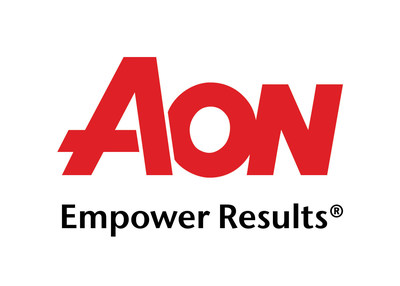You are here
Aon reports risk readiness drops to lowest level in 12 years
Aon reports risk readiness drops to lowest level in 12 years
PR Newswire
LONDON, April 29, 2019
Aon's 2019 Global Risk Management Survey identifies challenges organizations face in assessing and responding to traditional and emerging risks
LONDON, April 29, 2019 /PRNewswire/ -- Economic and global trade concerns are challenging organizations' ability to invest adequately in preparing for and protecting the continuity of their operations, according to findings from Aon's 2019 Global Risk Management Survey.
"Companies of all sizes are struggling to prioritize their risk management efforts amid so much change and uncertainty," said Rory Moloney, chief executive officer, Global Risk Consulting. "What was once a tried-and-true strategy for risk mitigation – using the past to predict the future – is now a challenge and coupled with a more competitive global economy, it is causing an all-time low level of risk readiness. As a result, risk management plans need to take a different approach than they have in the past."
Aon plc, the leading global professional services firm providing a broad range of risk, retirement and health solutions, surveys thousands of risk managers across 60 countries and 33 industries every two years to identify key risks and challenges their organizations are facing.
In the 2019 Global Risk Management Survey, respondents ranked economic slowdown as their No. 1 risk. Damage to reputation/brand was cited as the No. 2 concern, reflecting the potential for significant consequences when corporate mishaps occur amidst a 24/7 news cycle on social medial platforms. Accelerated rates of change in market factors stemming from an increase in protectionist international trade policies, which include rising regulatory activity and geopolitical tension, jumped from 38 in the previous survey to round out the top three concerns on the 2019 list.
Aon obtained responses for their 2019 Global Risk Management Survey in the fall of 2018, during a time of enormous uncertainty around the globe, fueled by stock market declines, trade policy disputes, aggressive regulatory actions, massive recalls, an active cycle of devastating natural disasters, far-reaching cyber-attacks and corporate scandals. These broader macro-economic risks, combined with the speed of technology change, are contributing to a growing prominence of new threats that can disrupt supply chains and overall business operations. As a result, one-third of the top 15 risks are new entrants to the top 15 list, including accelerated rates of change in market factors and disruptive technologies.
Risk managers are reporting their lowest level of risk readiness in 12 years, as many of the top risks, such as economic slowdown and increasing competition are uninsurable. As a result, risk managers need to embrace risk management as opposed to risk transfer in order to mitigate these threats and protect their organizations from potential volatility.
"The changes in this year's survey results indicate that the risk management function must evolve to reach the enterprise level," added Moloney. "This, combined with the use of data and predictive analytics that can generate actionable insights, will help businesses protect their bottom lines while adapting to accelerated change and economic fluctuations."
Additional Key Findings:
- Aging workforce rises from a ranking of 37 in 2017 to 20 in 2019. It is predicted to rise to 13 by 2022. Overall, aging populations coupled with workforce shortages not only change the social and economic trajectory of a country, but also create volatility within organizations.
- Climate change moved from a ranking of 45 in 2017 to 31 in 2019, as the frequency and severity of natural catastrophes contribute to rising concerns about the impact on the global economy.
- Cyber-attacks/data breaches rank as the No. 6 risk and are expected to jump to the third-highest overall risk in 2022. Cyber continues to hold the No. 1 spot among those responding from North America. For the first time, cyber risk is predicted to be in the top-10 list for Latin America. It is also predicted to rise in Europe from a ranking of eight to four, and in the Middle East and Africa from eight to two.
- Disruptive technologies are a growing concern for survey respondents, rising from a ranking of 20 in 2017 to 14 in 2019 globally. This trend is cited as a top-10 risk for 50 percent of all industry sectors.
Participant profiles in Aon's 2019 Global Risk Management Survey encompassed small (below $1B USD), medium ($1B - $15B USD) and large (above $15B) organizations, including respondents from privately-owned companies, public organizations, government and not-for-profit entities. The full report can be accessed at www.aon.com/2019GlobalRisk.
About Aon
Aon plc (NYSE:AON) Aon is a leading global professional services firm providing a broad range of risk, retirement and health solutions. Our 50,000 colleagues in 120 countries empower results for clients by using proprietary data and analytics to deliver insights that reduce volatility and improve performance.
Follow Aon on Twitter and LinkedIn
Stay up to date by visiting the Aon Newsroom and hear from our expert advisors in The One Brief.
Media Contact:
Matt Taylor, 312-783-5837, [email protected]

![]() View original content to download multimedia:http://www.prnewswire.com/news-releases/aon-reports-risk-readiness-drops-to-lowest-level-in-12-years-300839097.html
View original content to download multimedia:http://www.prnewswire.com/news-releases/aon-reports-risk-readiness-drops-to-lowest-level-in-12-years-300839097.html
SOURCE Aon plc

Please make the indicated changes including the new text: US quotes snapshot data provided by IEX. Additional price data and company information powered by Twelve Data.